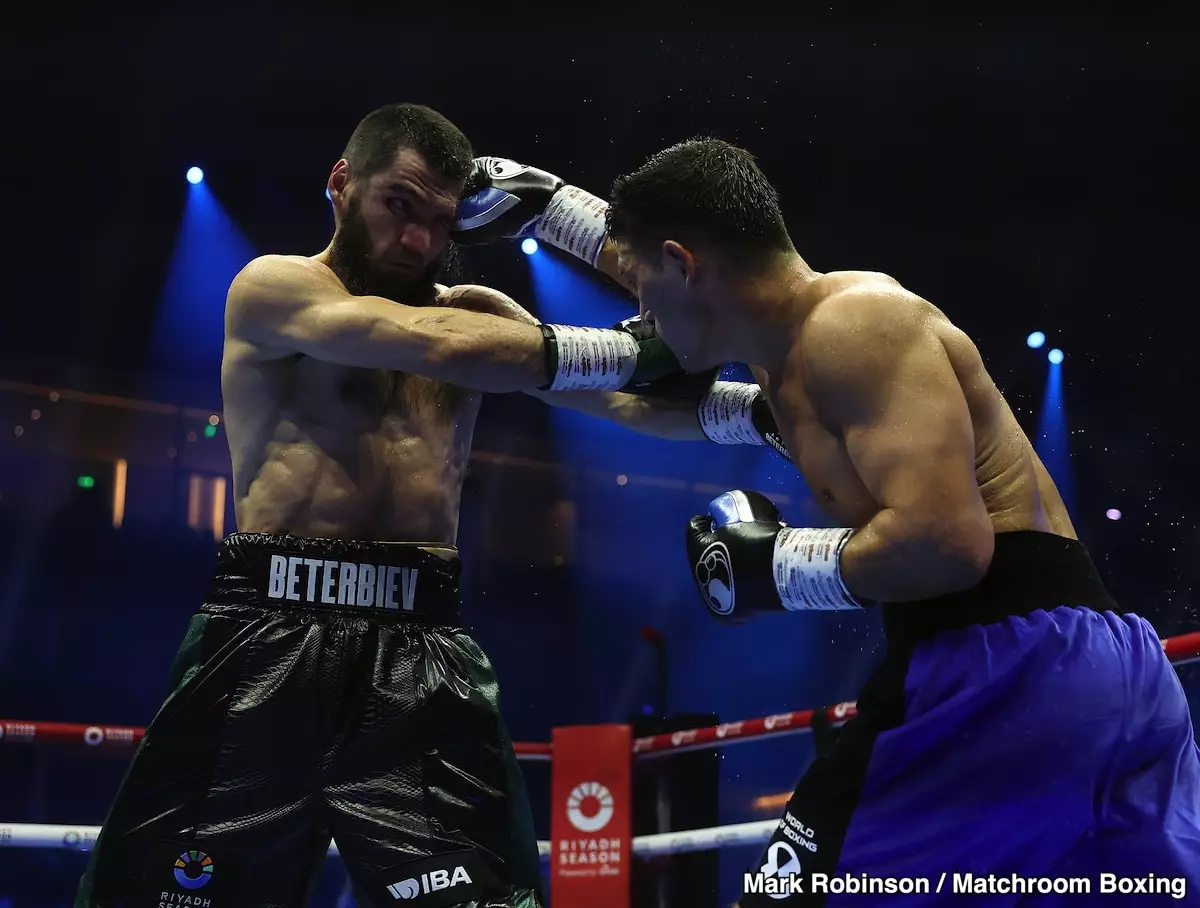The recent bout between Artur Beterbiev and Dmitry Bivol for the undisputed light heavyweight championship was not merely a contest of strength but a strategic chess match hinging on experience and endurance. Held at the Kingdom Arena in Riyadh, Saudi Arabia, the fight culminated in a majority decision favoring Beterbiev, with scores reflecting the tightness of the competition: 114-114, 115-113, and 116-112. This encounter painted a vivid picture of high-stakes boxing, where every jab, feint, and shift in momentum could alter the course of the fight.
Beterbiev, who boasted an impressive record of 21 wins and 20 knockouts before this match, served as a formidable challenge for Bivol. A former trainer, Teddy Atlas, shared his insights post-fight, indicating that he scored the bout 115-113 in favor of Beterbiev. Atlas’s perspective is particularly vital, as it provides a nuanced understanding of the fight’s dynamics, especially when dissecting the late rounds that saw a dramatic shift.
The climax of this fierce battle seemed to occur during the seventh round when Bivol initially appeared to gain the upper hand with a barrage of punches. However, as Atlas passionately noted, this very same round marked a significant turning point. While Bivol started strong, Beterbiev reacted fiercely, reflecting not just his physical prowess but also mental acuity. The relentless pressure applied by Beterbiev began to take a toll on Bivol, stripping him of his offensive rhythm and shifting the fight’s momentum palpably.
Atlas’s commentary underscores an essential aspect of boxing: the mental game. Despite Bivol’s early success, it became clear that the psychological struggle—coupled with Beterbiev’s body shots—was sapping Bivol’s energy and resolve. As the rounds progressed, Bivol found himself on the defensive, resorting to survival tactics instead of engaging, a shift that allowed Beterbiev to dominate from rounds eight through twelve.
Eddie Hearn, Bivol’s promoter, claimed that his fighter was robbed during the match, likely motivated by a desire to preserve the fighter’s public persona and marketability. In sports, such proclamations can often reflect the promoter’s vested interests rather than the objective reality of the fight’s dynamics. By arguing for a different outcome, Hearn attempts to maintain Bivol’s appeal in the boxing arena, essential for future matches and sponsorships. However, in a sport where the performance is quantifiable through rounds and points, subjective claims can dilute the transparency inherent in such events.
Atlas’s comments suggest an awareness of Hearn’s predicament. He commended the judges for awarding the fight to the right fighter, emphasizing that Beterbiev’s strategy and execution outweighed Bivol’s initial successes. This engagement is crucial for fans and commentators alike, serving as a reminder that while emotions run high in the aftermath of such significant matches, the results must be grounded in performance rather than rhetoric.
Beterbiev’s strategic approach to the fight revealed the importance of pacing and tactical decision-making, especially as he neared his 40s. Atlas noted that the champion demonstrated a level of intelligence in his fighting style—not rushing in recklessly, but rather gauging when to unleash his power. The contrast between Beterbiev’s controlled aggression and Bivol’s increasingly defensive posture illustrated the delicate balance required in high-stakes boxing.
As the rounds progressed, Beterbiev’s experience shone through. Atlas highlighted that while Bivol showed moments of brilliance, particularly in utilizing angles and jabs, it was Beterbiev’s capacity to withstand pressure, coupled with his strategic deployment of body shots, that ultimately rendered Bivol ineffective as the fight wore on.
The contest between Beterbiev and Bivol will undoubtedly be dissected for years to come, serving as a textbook case of how experience, mental fortitude, and game-day adaptability can tip the scales in high-performance sports. While Bivol displayed skill and tenacity in the early rounds, Beterbiev’s relentless pressure and tactical prowess proved insurmountable. This bout reaffirmed the idea that in boxing, victory is rarely determined by mere physical strength; rather, it is the culmination of strategy, conditioning, and, crucially, the mental fortitude to adapt and thrive under pressure. As fans reflect on this remarkable clash, one thing is certain: both fighters left an indelible mark on the sport.

